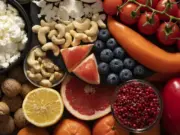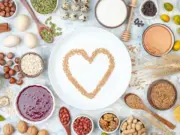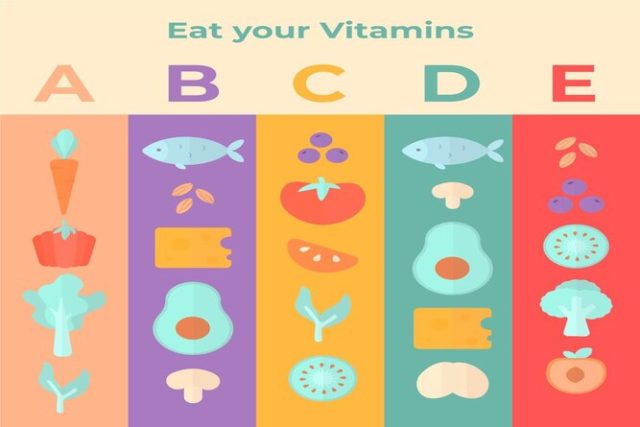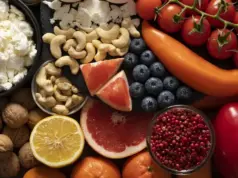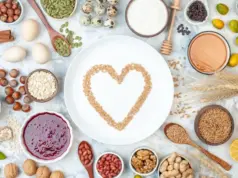Minerals and vitamins are substances that the body needs in extremely small amounts for vital metabolic processes. They are either water soluble, which the body cannot keep, or fat-soluble, which can be stored. The vitamins A, B, C, and D are well-known for their benefits.
Here are the ABCD’S of Vitamins:
- The Cell Regulator: Vitamin A
The human diet can obtain vitamin A in two different forms and sources because it is a fat-soluble vitamin;
Retinoids: Animal goods include meat, fish, poultry, and dairy products containing retinoids, or preformed vitamin A. Retinyl Palmitate or Retinyl Acetate are examples of typical types.
Carotenoids: Fruits and vegetables that are orange, yellow, or dark, leafy green in colour contain carotenoids, often known as pro-vitamin A. Beta Carotene is the kind that is most well-known.
- The Energisers of the Vitamin B Group
These vitamins actually make up a broad group that includes the following:
Thiamine(B1), Riboflavin(B2), Niacin(B3), Pantothenic Acid(B5), Pyridoxine(B6), and Biotin (B7), folate (folic acid)(B9), and (B12) Cobalamin.
Proteins from foods including poultry, fish, eggs, meat, and dairy items are among the sources. Beans and peas are other excellent sources, as are leafy green vegetables. Diseases like anaemia, which can be caused by a deficiency in vitamins B12 or B6, might be brought on by a lack of specific B vitamins.
- The Healer: Vitamin C
L-ascorbic acid, also known as vitamin C, is still a water-soluble vitamin that the body cannot produce on its own, making daily intake crucial. Vitamin C excess is eliminated in the urine.
Ascorbic Acid with Bioflavonoids, Ascorbates frequently referred to as Ester C, which are able to be kept in the body for longer periods of time are some of the types of vitamin C supplementation .Regular drinkers, smokers, people experiencing great stress or illness, people taking aspirin or antibiotics routinely, and those who consume alcohol regularly all require additional support.
- The sunshine: Vitamin D
A fat-soluble vitamin called vitamin D is necessary for blood coagulation, calcium absorption, and healthy bones. Ergocalciferol, often known as vitamin D2, and vitamin D3, are the two most crucial types of vitamin D to people (Cholecalciferol).
Eggs, cheese, oily fish, and moderate sun exposure are ways to enhance blood stocks of vitamin D during the winter. Smog-filled environments, the use of laxatives, and eating fried foods can all lower vitamin D levels. Vitamin D is advantageous for both general health and exercise since it supports the health of the bones and muscles. With age, vitamin D requirements also rise.
- Vitamin E
Tocopherol, the molecular term for vitamin E, or tocotrienol is another name for it. This vitamin A fat-soluble in fat-soluble in fat-soluble in fat-soluble in fat-soluble in
The antioxidant capacity of this vitamin encourages problems including multiple instances of irritation, a variety of illnesses, and oxidative stress. Wheat germ, eggs, kiwis, nuts, almonds, leafy greens, and vegetable oils are foods that contain vitamin E.
- Vitamin K
This vitamin’s chemical name is phylloquinone or menaquinone. It also has the benefit of being a fat-soluble vitamin. This vitamin contributes to blood coagulation. It can be found in a variety of foods, including parsley, leafy greens, natto, figs, and pumpkin.
Conclusion
When spending money on higher-quality foods, it’s crucial to comprehend the ABCs of vitamins. All of these critical vitamins are crucial for bodily functions like digestion, eyesight, bone health, neuron function, and immune system support. It’s always better to discuss your daily diet with a qualified nutritionist or your doctor, depending on the situation. Because our bodies are complicated, eating whole, authentic foods that are rich in minerals and low in calorie intake is the greatest approach to receive the vital vitamins you need.














